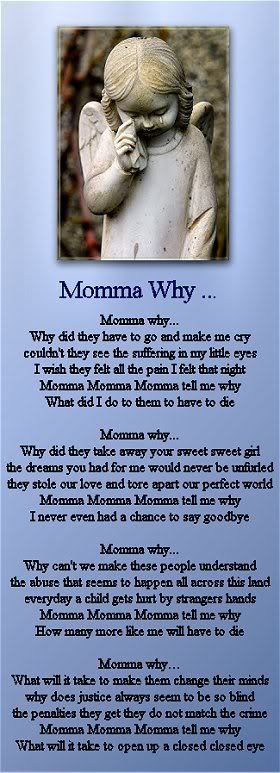
Welcome To Our Site
FRIENDS DON'T LET FRIENDS DIE.COM
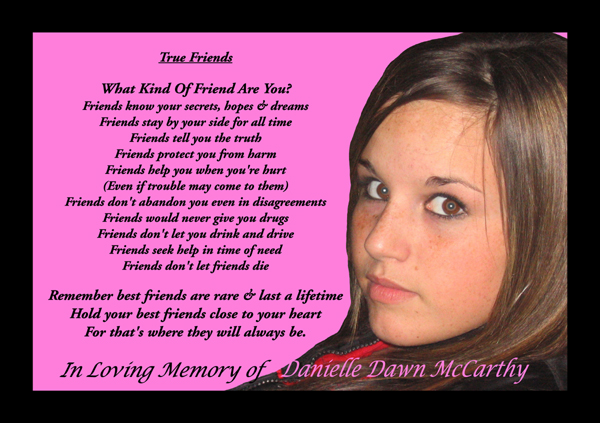
Participate in our forum
Ask The White House
State and Federal Drug Laws
Regarding Death or Serious Injury
Drug Enforcement Administration(DEA)
Drug Trafficking Penalties
Patchwork of Penalties
Find your State's Statutes
Contact your Congressman
Senator or Governor
Crime Victims
Bill of Rights and Compensation
About This Site
State News
Chat
Our Children
Click on a name below to see their page
Danielle McCarthy
Washington
Christi Nowak
Georgia
Anke Furber
Georgia
Levi Wren
Washington
Ephrain Schultz
New York
Mark R Ellis
Rhode Island
Sean P. Efford
New Mexico
Caitlyn Brady
New Hampshire
Katty McGuire Andrea
Washington
JP Faulk
Florida
Michael Miller
Massachusetts
Chuck Tabaka
Wisconsin
Miranda Daly
California
Jamie Leavitt
Washington
Kaylin Marie Mathews
California
RJ Davis
Alabama
Billy Grandchamp
Rhode Island
Nicholas Werhofnik
Georgia
Rebecca Marks
New York
Dustin Kueter
South Dakota
Chase Denver Julian
Louisiana
Katelynn Porter
Ontario,Canada
Tony Trujillo
Colorado
Billy Joe Towle Jr.
Michigan
Kelley Wilson
Alabama
Rhiannon Fraser
Florida
Vivianna Satterfield
New Mexico
Kelli Laine Lewis
South Carolina
Taylor Smith
Georgia
 Danielle cherished family, friends and life. She had her whole life planned
out; her husband, number of kids, two dogs and would be a dermatologist, a career
where she could help others but have time for her family.
Danielle cherished family, friends and life. She had her whole life planned
out; her husband, number of kids, two dogs and would be a dermatologist, a career
where she could help others but have time for her family. 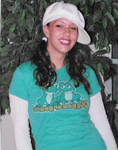 Christi had just enrolled in college. She just began taking First Baptist Church
shuttles downtown every Thursday to befriend the homeless. Just chit chatting
with them and letting them know they had a friend. In her journals, she was
determined to turn her life around and she started by helping others. She volunteered
often for the M.U.S.T. Ministries to help set up their clothing shop for the
homeless and the children's center. She helped cooked their meals. She helped
do their laundry. She wanted to go into a field helping others. She would have
changed at least one person's life, for the better, when they thought there
was no more hope. She didn't show up last Thursday. She died.
Christi had just enrolled in college. She just began taking First Baptist Church
shuttles downtown every Thursday to befriend the homeless. Just chit chatting
with them and letting them know they had a friend. In her journals, she was
determined to turn her life around and she started by helping others. She volunteered
often for the M.U.S.T. Ministries to help set up their clothing shop for the
homeless and the children's center. She helped cooked their meals. She helped
do their laundry. She wanted to go into a field helping others. She would have
changed at least one person's life, for the better, when they thought there
was no more hope. She didn't show up last Thursday. She died.  In the months before she was killed, 21-year-old Anke Furber had been acting
scared and she seemed to know she was in danger. Several days after Furber's
charred remains were discovered in a small vineyard in Norcross, Anke's mom,
Ria, found a note in Anke's desk at home in Marietta. In it, Anke seemed to
foreshadow her own death. She wrote, "My parents would surely grieve the loss
of their wonderful daughter whose craziness would soon lead to her slaughter".
Ria isnt sure exactly when the note was written, but believes it was written
in a close time frame to the actual murder.
In the months before she was killed, 21-year-old Anke Furber had been acting
scared and she seemed to know she was in danger. Several days after Furber's
charred remains were discovered in a small vineyard in Norcross, Anke's mom,
Ria, found a note in Anke's desk at home in Marietta. In it, Anke seemed to
foreshadow her own death. She wrote, "My parents would surely grieve the loss
of their wonderful daughter whose craziness would soon lead to her slaughter".
Ria isnt sure exactly when the note was written, but believes it was written
in a close time frame to the actual murder. 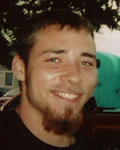 At 22 years old, Levi had goals and ambitions of being a business owner, a husband
and a father. He loved his family and friends with everything in him and would
do anything for you. His shyness and manners we're a shining attribute to who
he was. Unfortunately, Levi befriended someone who for nearly three years took
advantage of his kindness and when asked to leave his home, he killed him. If
he would have just walked out the door as asked, Levi would still be here today.
We'll never know all the wonderful things that Levi would have accomplished,
but we know he was a "Friend" till the end.
At 22 years old, Levi had goals and ambitions of being a business owner, a husband
and a father. He loved his family and friends with everything in him and would
do anything for you. His shyness and manners we're a shining attribute to who
he was. Unfortunately, Levi befriended someone who for nearly three years took
advantage of his kindness and when asked to leave his home, he killed him. If
he would have just walked out the door as asked, Levi would still be here today.
We'll never know all the wonderful things that Levi would have accomplished,
but we know he was a "Friend" till the end. 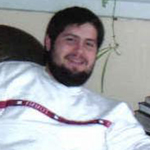 Ephraim was 21 yrs old when he prematurely transitioned to the other side. He
was a very warm hearted young man. And was always available to help friends
and family. As his cousin Ben said about him: "You can lay a 1,000. on the table
and know completely that Ephraim would have never taken it". He spent most of
his days at Antique World in Clarence , NY which was owned and operated by his
Uncle. That was my sons world. A world he will no longer be able to participate
in. He is sorely missed by his family and friends.
Ephraim was 21 yrs old when he prematurely transitioned to the other side. He
was a very warm hearted young man. And was always available to help friends
and family. As his cousin Ben said about him: "You can lay a 1,000. on the table
and know completely that Ephraim would have never taken it". He spent most of
his days at Antique World in Clarence , NY which was owned and operated by his
Uncle. That was my sons world. A world he will no longer be able to participate
in. He is sorely missed by his family and friends.  Mark suffered a brain injury at the age of 19 the night of a high school prom.
Mark died at the age of 25. Life was hard for Mark, he lived an aphasic life.
Mark struggled to relearn his alphabet and to speak again. Neuro rehab, drug
rehab, jails, institutions and death. Mark was disabled and a fighter all at
the same time. College, heavy equipment operator, volunteering were all part
of these six years. Mark loved kids and wished he had one. Due to the selfish
reasoning of his so called friends, Mark will never be able to achieve his dreams
that he fought so hard for. Mark's struggle is over !! PEACE..........
Mark suffered a brain injury at the age of 19 the night of a high school prom.
Mark died at the age of 25. Life was hard for Mark, he lived an aphasic life.
Mark struggled to relearn his alphabet and to speak again. Neuro rehab, drug
rehab, jails, institutions and death. Mark was disabled and a fighter all at
the same time. College, heavy equipment operator, volunteering were all part
of these six years. Mark loved kids and wished he had one. Due to the selfish
reasoning of his so called friends, Mark will never be able to achieve his dreams
that he fought so hard for. Mark's struggle is over !! PEACE..........  His friends describe him as a kind, warm hearted, full of energy, always smiling,
and a very silly young man. They also said that whenever Sean walked into a
room that he had the ability lighting up the room because he was full of life
and energy! He loved his dad, his mom, and his sister very much. He had a very
special bond with his great grandma Efford and his great aunt Charlene whom
also up in heaven with him. A warm hug from Sean was just another way that he
showed his affection to his family and friends
His friends describe him as a kind, warm hearted, full of energy, always smiling,
and a very silly young man. They also said that whenever Sean walked into a
room that he had the ability lighting up the room because he was full of life
and energy! He loved his dad, his mom, and his sister very much. He had a very
special bond with his great grandma Efford and his great aunt Charlene whom
also up in heaven with him. A warm hug from Sean was just another way that he
showed his affection to his family and friends  When Cayte was in the middle school she was on the track team, she was a cheerleader
for the Nor-Roc Vikings, she was on a soccer team, and she loved attending the
dances at the Sad Cafe. When she went to high school, all of those activities
stopped. The sad reason was because she was too old. All the kids have, once
they reach high school, are the woods and the homes of friends when the parents
are at work. If she had activities to do after school when she went to high
school, maybe this wouldn't have happened.
When Cayte was in the middle school she was on the track team, she was a cheerleader
for the Nor-Roc Vikings, she was on a soccer team, and she loved attending the
dances at the Sad Cafe. When she went to high school, all of those activities
stopped. The sad reason was because she was too old. All the kids have, once
they reach high school, are the woods and the homes of friends when the parents
are at work. If she had activities to do after school when she went to high
school, maybe this wouldn't have happened.  From her birth to her passing Katty touched so many lives. Not only did her
family have the joy of watching her grow from a 6 pound baby girl to a beautiful
young woman, but so many others did as well. The lives she touched are too many
to fathom. Her beauty and grace preceded her where ever she went. Her heart
was made of fine gold and she cared for others always before herself. She was
not just special to all of us but to the Lord who saw fit to call her home at
such a young age. Her mansion was ready! When we think of Katty now we all can
be at peace because we know she is with her Lord, never to face this harsh world
we live in day to day. She is with us always when we remember her smile, her
touch, and her kind words. We all had the pleasure of being touched by an ANGEL!
From her birth to her passing Katty touched so many lives. Not only did her
family have the joy of watching her grow from a 6 pound baby girl to a beautiful
young woman, but so many others did as well. The lives she touched are too many
to fathom. Her beauty and grace preceded her where ever she went. Her heart
was made of fine gold and she cared for others always before herself. She was
not just special to all of us but to the Lord who saw fit to call her home at
such a young age. Her mansion was ready! When we think of Katty now we all can
be at peace because we know she is with her Lord, never to face this harsh world
we live in day to day. She is with us always when we remember her smile, her
touch, and her kind words. We all had the pleasure of being touched by an ANGEL! We want our son's name to be Remembered and to bring hope and joy out of something
that has been the darkest and heartbreaking days of our families life. JP was
very out spoken and we have decided to be that way on this site and to be his
voice about the drug companies and the public official's that sit back and do
nothing. If we could save one person from what our family had to go Through
and is still going Through, it would be all worth it We will not stop until
the truth gets out. We want his memory to live on.
We want our son's name to be Remembered and to bring hope and joy out of something
that has been the darkest and heartbreaking days of our families life. JP was
very out spoken and we have decided to be that way on this site and to be his
voice about the drug companies and the public official's that sit back and do
nothing. If we could save one person from what our family had to go Through
and is still going Through, it would be all worth it We will not stop until
the truth gets out. We want his memory to live on. 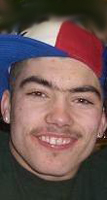 Time has gone by so quickly and it seems like we haven't seen your face in forever.
Our hearts are broken, our tears flow so freely and our souls feel empty. Michael,
you left us with so many happy memories but the memories can never take your
place. We know you and your uncle Sam are saving a place for those who cherished
you the most.
Time has gone by so quickly and it seems like we haven't seen your face in forever.
Our hearts are broken, our tears flow so freely and our souls feel empty. Michael,
you left us with so many happy memories but the memories can never take your
place. We know you and your uncle Sam are saving a place for those who cherished
you the most.  Two weeks before he died, Chuck called me on the phone. He was excited to tell
me he was joining the National Guard. He had begun to think about being a History
Teacher. He planned to attend school after basic training. He also mentioned
a new girlfriend. He was pretty crazy about her but wanted to give things a
little more time before making her "meet the parents". Still, we made plans
to meet for lunch once July wound down. He thought we might all get together
and told me not to worry, he had a job and would help pay the check. The first
time I met the young lady he was so crazy about was as she cried herself senseless
over his casket. She laid a broken heart chain and necklace across his hands.
She wore the mating half around her slender neck. Her courage in court helped
to solidify the deal that sent a drug dealer to prison. I hope she, and Chuck's
other friends, make the right decision and swear off drug use so we may never
see their faces on these pages.
Two weeks before he died, Chuck called me on the phone. He was excited to tell
me he was joining the National Guard. He had begun to think about being a History
Teacher. He planned to attend school after basic training. He also mentioned
a new girlfriend. He was pretty crazy about her but wanted to give things a
little more time before making her "meet the parents". Still, we made plans
to meet for lunch once July wound down. He thought we might all get together
and told me not to worry, he had a job and would help pay the check. The first
time I met the young lady he was so crazy about was as she cried herself senseless
over his casket. She laid a broken heart chain and necklace across his hands.
She wore the mating half around her slender neck. Her courage in court helped
to solidify the deal that sent a drug dealer to prison. I hope she, and Chuck's
other friends, make the right decision and swear off drug use so we may never
see their faces on these pages.  Everyone ever touched by Miranda. This will be a tribute to the life she lived.
She was the most remarkable and inspirational woman I have ever known. I was
in awe of my own daughter. Even as her mother, her beauty took my breath away,
and as she walked this earth from her crawling stages to adulthood her beauty
from the inside amazed me. Miranda loved about every living thing and each friend
she had she made her relationship with them special and unique.
Everyone ever touched by Miranda. This will be a tribute to the life she lived.
She was the most remarkable and inspirational woman I have ever known. I was
in awe of my own daughter. Even as her mother, her beauty took my breath away,
and as she walked this earth from her crawling stages to adulthood her beauty
from the inside amazed me. Miranda loved about every living thing and each friend
she had she made her relationship with them special and unique.  Jamie was a very loving son, brother, grandson, nephew, boyfriend and friend..
Most importantly he was the best father anyone could have asked for.. Even though
he was only 16 when he was taken away from us from his so called friend, he
did everything for his daughter and mother of his daughter that he had
asked to marry him when he turns 18.. Jamie was the type of kid that would take
his shirt off his back for anyone that needs it.. Jamie died on April
23, 2008.. If only his so called friend (29 yrs old), his mother and the other
people at the home called 911 instead of waiting 3 hours, he would still be
here with us today.. Jamie's dad passed away Nov 2005 and he had a hard time
dealing with loosing his father and could not believe he was gone.. Well now
Jamie is at home with his dad..Until we meet again... I am proud of you my son..Love
you always and forever, Mommy
Jamie was a very loving son, brother, grandson, nephew, boyfriend and friend..
Most importantly he was the best father anyone could have asked for.. Even though
he was only 16 when he was taken away from us from his so called friend, he
did everything for his daughter and mother of his daughter that he had
asked to marry him when he turns 18.. Jamie was the type of kid that would take
his shirt off his back for anyone that needs it.. Jamie died on April
23, 2008.. If only his so called friend (29 yrs old), his mother and the other
people at the home called 911 instead of waiting 3 hours, he would still be
here with us today.. Jamie's dad passed away Nov 2005 and he had a hard time
dealing with loosing his father and could not believe he was gone.. Well now
Jamie is at home with his dad..Until we meet again... I am proud of you my son..Love
you always and forever, Mommy  Kaylin Marie Mathews was born on a Tuesday March 1, 1988. Kaylin was my oldest
child and my only daughter. She could play the piano, guitar, and drums and
loved to sing. She had been "spinning records" the last few years and loved
to mix music. She had been working as a d.j. at the time of her death and was
very good. Kaylin was an only child for 71/2 years. She has one brother and
one sister. She was a talented writer. She made jewelry and she could draw.
There was nothing that my baby couldn't do, if she wanted to. Kaylin was left
to die in a ravine on June 30, 2008. She was found on July 1, 2008. Her date
of death is listed as a Tuesday July 1, 2008. She was 20 years old. I miss her
every second of every day. The world lost an amazing talent and an amazing young
woman. I lost a part of my heart.
Kaylin Marie Mathews was born on a Tuesday March 1, 1988. Kaylin was my oldest
child and my only daughter. She could play the piano, guitar, and drums and
loved to sing. She had been "spinning records" the last few years and loved
to mix music. She had been working as a d.j. at the time of her death and was
very good. Kaylin was an only child for 71/2 years. She has one brother and
one sister. She was a talented writer. She made jewelry and she could draw.
There was nothing that my baby couldn't do, if she wanted to. Kaylin was left
to die in a ravine on June 30, 2008. She was found on July 1, 2008. Her date
of death is listed as a Tuesday July 1, 2008. She was 20 years old. I miss her
every second of every day. The world lost an amazing talent and an amazing young
woman. I lost a part of my heart.  R.J. was truly a blessing in our lives. He was the kind of son that most parents
only dream of having. He always respected and obeyed his parents and never got
in trouble. RJ was never in trouble in his life RJ always called home to let
us know where he was and when he would be home. When he was missing and we couldn't
reach him on his cell phone, we knew immediately something terrible was wrong.
This is a nightmare that no parent should have to go through and we are living
it. Our concern is not what we are going through, but what our son had to go
through in his final moments of life.
R.J. was truly a blessing in our lives. He was the kind of son that most parents
only dream of having. He always respected and obeyed his parents and never got
in trouble. RJ was never in trouble in his life RJ always called home to let
us know where he was and when he would be home. When he was missing and we couldn't
reach him on his cell phone, we knew immediately something terrible was wrong.
This is a nightmare that no parent should have to go through and we are living
it. Our concern is not what we are going through, but what our son had to go
through in his final moments of life.  William Michael Grandchamp better known as Billy, was born Nov 7,1979. HE was
a only child. Billy had many friends. Billy often told his friends that his
MOM was his best friend. Billy liked to collect sports attire like jerseys and
sports caps.Everything he wore had to match. He was meticulous with his clothing,
car, and home. Although, Billy had no children of his own he loved children.
He told me his greatest wish was to find a good girl and settle down and have
a family. That seemed to be very important to him. Even at a young age he had
a gift with children. Billy's friends have always commented on how good he was
with their children and how their children loved him. Billy was loved by so
many people. He had over 800 friends and family members at his wake. Billy will
be greatly missed by all his family and friends.
William Michael Grandchamp better known as Billy, was born Nov 7,1979. HE was
a only child. Billy had many friends. Billy often told his friends that his
MOM was his best friend. Billy liked to collect sports attire like jerseys and
sports caps.Everything he wore had to match. He was meticulous with his clothing,
car, and home. Although, Billy had no children of his own he loved children.
He told me his greatest wish was to find a good girl and settle down and have
a family. That seemed to be very important to him. Even at a young age he had
a gift with children. Billy's friends have always commented on how good he was
with their children and how their children loved him. Billy was loved by so
many people. He had over 800 friends and family members at his wake. Billy will
be greatly missed by all his family and friends. 


 Chase lived life spontaneously with the freedom of a butterfly – a free spirit
& soul – no one could hold him down, except his baby girl. She was his LIFE.
There wasn’t anything he wouldn’t do for her, including getting clean. Chase
was clean 1.5 yrs, after 6 months in residential rehab in New Orleans, continued
with NA meetings, substance abuse group counseling, and sought out a Navy recruiter
who told him all he would have to do to be eligible. He seemed to be on his
way, until he fell off the wagon 12 days out of jail. Turning to heroin again
to deal with stress was the mistake of his life. “Chase’s Story” is shared with
you on his main page. Thanks for taking time to read it. Sincere and heartfelt
thanks to the FDLFD Family for taking us under their wings. “They will sing
me to them, and I will hear.” ~RIP Chase~4evrYng~1985-2009
Chase lived life spontaneously with the freedom of a butterfly – a free spirit
& soul – no one could hold him down, except his baby girl. She was his LIFE.
There wasn’t anything he wouldn’t do for her, including getting clean. Chase
was clean 1.5 yrs, after 6 months in residential rehab in New Orleans, continued
with NA meetings, substance abuse group counseling, and sought out a Navy recruiter
who told him all he would have to do to be eligible. He seemed to be on his
way, until he fell off the wagon 12 days out of jail. Turning to heroin again
to deal with stress was the mistake of his life. “Chase’s Story” is shared with
you on his main page. Thanks for taking time to read it. Sincere and heartfelt
thanks to the FDLFD Family for taking us under their wings. “They will sing
me to them, and I will hear.” ~RIP Chase~4evrYng~1985-2009  Katelynn Lillian Porter, 16, of West Elgin, was killed in a car crash on Dunborough
Rd. in Elgin County. “In loving memory of Katelynn Porter. 12/12/09. 9:40 p.m.”
is written between two hearts on the roadside memorial, a makeshift cross. Porter
was a student at West Elgin secondary school, where officials are trying to
come to grips with the news of her death, especially so close to Christmas.
Katelynn Lillian Porter, 16, of West Elgin, was killed in a car crash on Dunborough
Rd. in Elgin County. “In loving memory of Katelynn Porter. 12/12/09. 9:40 p.m.”
is written between two hearts on the roadside memorial, a makeshift cross. Porter
was a student at West Elgin secondary school, where officials are trying to
come to grips with the news of her death, especially so close to Christmas.
 Tony passed away 10 days after his 16th birthday. He asked permission to spend the night at his friends and I told him yes. I told him" I love you" and he replied "I love you too Mom. Tony was the kid who wanted to make everyone laugh. He had such a wonderful sense of humor and a big heart. He would talk to his friends for hours trying to help them solve their problems. He was a loving big brother, and a wonderful son. He would help you with anything without even being asked. Tony was an extremely intelligent child. He was always placed in advanced classes. A week before he passed we received a letter from Columbine informing us that Tony was nominated to participate in their advanced English Program. He had a gift for writing stories.
Tony passed away 10 days after his 16th birthday. He asked permission to spend the night at his friends and I told him yes. I told him" I love you" and he replied "I love you too Mom. Tony was the kid who wanted to make everyone laugh. He had such a wonderful sense of humor and a big heart. He would talk to his friends for hours trying to help them solve their problems. He was a loving big brother, and a wonderful son. He would help you with anything without even being asked. Tony was an extremely intelligent child. He was always placed in advanced classes. A week before he passed we received a letter from Columbine informing us that Tony was nominated to participate in their advanced English Program. He had a gift for writing stories.


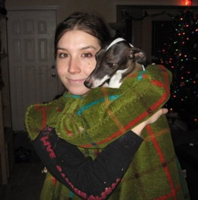 She loved all things technical and mechanical with her older brother Ian and fashion and decorating days with her older sister Genevieve. She loved Gothic country art, the workings of the human body, video games, driving and her new tattoo machine. She loved swimming and surfing. She loved all things living and loved her dog Timpleton and her parrot Thermopolis. She had a strong heart and soul, was an independent and progressive thinker, open minded and a will power like no one else. Her favorite place to go was Barnes and Noble.
She loved all things technical and mechanical with her older brother Ian and fashion and decorating days with her older sister Genevieve. She loved Gothic country art, the workings of the human body, video games, driving and her new tattoo machine. She loved swimming and surfing. She loved all things living and loved her dog Timpleton and her parrot Thermopolis. She had a strong heart and soul, was an independent and progressive thinker, open minded and a will power like no one else. Her favorite place to go was Barnes and Noble.
 Vivianna Satterfield was 15 years old! Vivi was the type of young lady that put other people in front of herself. She would always say "Peace and Love".
Vivianna Satterfield was 15 years old! Vivi was the type of young lady that put other people in front of herself. She would always say "Peace and Love".
 Kelli Laine Lewis is my only daughter. Kelli died when she was 18 after attending a party hosted by 3 adults who offered a $5.00 entry fee to come and drink all you wanted. A pretty tempting offer for teens not old enough to buy alcohol.
Kelli Laine Lewis is my only daughter. Kelli died when she was 18 after attending a party hosted by 3 adults who offered a $5.00 entry fee to come and drink all you wanted. A pretty tempting offer for teens not old enough to buy alcohol.
 Growing up – she had it all. She was smart and witty - she could come up with a jovial comeback in almost any conversation or situation. She wShe was smart and witty - she could come up with a jovial comeback in almost any conversation or situation. She was always photographing everything and always laughing. She had an infectious laugh, loud and squeaky, but incredibly endearing. Taylor was a huge fan of Tyler Perry’s Madea. She owned every play and knew every word to every gospel song in the plays. She would sing them at the top of her lungs to anyone that would listen. as always photographing everything and always laughing. She had an infectious laugh, loud and squeaky, but incredibly endearing.
Growing up – she had it all. She was smart and witty - she could come up with a jovial comeback in almost any conversation or situation. She wShe was smart and witty - she could come up with a jovial comeback in almost any conversation or situation. She was always photographing everything and always laughing. She had an infectious laugh, loud and squeaky, but incredibly endearing. Taylor was a huge fan of Tyler Perry’s Madea. She owned every play and knew every word to every gospel song in the plays. She would sing them at the top of her lungs to anyone that would listen. as always photographing everything and always laughing. She had an infectious laugh, loud and squeaky, but incredibly endearing.
 He went out THE FIRST TIME to celebrate being "LEGAL" with a creep he considered a friend (even though we warned him this guy was not a true friend). My son did not drive so he was picked up about ten thirty. Even when it was obvious my son was having difficulties this creep brought him to his own house , which is 4 houses away for a few hours, and dropped him off here at home in the middle of the night WITHOUT KNOCKING OR CALLING OR WAKING US UP. We found Ben in his bed the next morning when we tried to wake him.
He went out THE FIRST TIME to celebrate being "LEGAL" with a creep he considered a friend (even though we warned him this guy was not a true friend). My son did not drive so he was picked up about ten thirty. Even when it was obvious my son was having difficulties this creep brought him to his own house , which is 4 houses away for a few hours, and dropped him off here at home in the middle of the night WITHOUT KNOCKING OR CALLING OR WAKING US UP. We found Ben in his bed the next morning when we tried to wake him.
Click here to Meet
Our Parents
  Click above to visit Our Sites |
Click on the name below to see full story
|
Washington News:
This is now saved
Get the Flash Player
Drug overdose callers may get legal immunity
05:59 PM PST on Thursday, February 19, 2009
SEATTLE � A pair of bills have passed in the Washington Legislature that would provide legal immunity for people who call medics when they see someone overdosing on drugs.
Supporters say it will save lives while critics say it gives safe haven to criminals.
Brenda Harrison has been clean and sober for 19 years. She�s now a counselor at Therapeutic Health Services. Her clients use drugs ranging from heroin to prescription oxycontin.
She says almost any addict would hesitate to get help for a friend who�s overdosed if it means facing criminal prosecution themselves.
"Even fairly kind people who have a good heart and some pretty good values, they will pause if it means maybe giving up their freedom for five, ten years,� said Harrison.
In 2007, more than 760 people died in Washington state from overdoses. That includes 16-year-old Danielle McCarthy from Puyallup, who died after taking Ecstacy. The other teens she was with claimed they were too scared to get her help until it was too late.
Stories like McCarthy�s have prompted lawmakers to push for the passage of a bill to give legal immunity to anyone who calls 911 when witnessing a drug overdose.
"If we can save a life, then that is what I'm concerned with,� said Sen. Rosa Franklin, D, Lakewood.
The bill made it through the judiciary committee, but Sen. Pam Roach, R-Auburn, voted against it, saying it provides a safe haven to criminals.
"Well I think we should do everything we can to save a life, that's absolutely right, but we can't do it in a way that creates holes in our very well structured drug law,� said Roach.
Harrison disagrees, saying police and prosecutors can always pursue a criminal, but that a lost life can never be replaced.
"If they're still breathing, there's hope,� said Harrison. �Once they're not breathing anymore, that's done. And so all the dreams of that family � gone.�
A companion bill has also passed through a House sub-committee. The Senate has considered similar bills in the past, but not approved them.
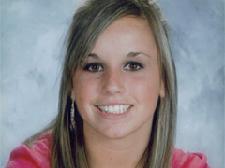
Danielle McCarthy of Puyallup, Wash. died after taking Ecstasy.
Related Content
|
Published: Tuesday, October
21, 2008 Woman pleads guilty in friend's drug overdose death By
Diana Hefley  attacked her body. attacked her body.Two women watched as Helvey, 21, collapsed to the floor. Prosecutors allege they did nothing to save Helvey. They didn't summon medical attention until after Helvey was already dead. Mallori Smith, 24, admitted Monday she bears responsibility. Smith pleaded guilty to second-degree manslaughter with lack of remorse as an aggravating factor. She faces up to three years in prison. Her time in prison hinges on the results of genetic testing. Prosecutors say evidence suggests Helvey was sexually assaulted some time after she ingested the drug. Smith denies involvement. Smith, of Lake Stevens, wept as Snohomish County Superior Court Judge Bruce Weiss read from documents admitting she negligently caused her friend's death. Smith's attorney Max Harrison put his arm around her shoulder as Smith quietly told the judge she was guilty. Helvey's parents wrapped their arms around each other as they watched Monday's hearing. Helvey's mother wore a picture of her daughter pinned to her shirt. Weiss on Friday had delayed a plea hearing to give Smith time to review the agreement with her attorney. Weiss asked Smith twice Monday if she had been threatened or promised anything. Smith had earlier indicated she wouldn't accept any plea agreement and expected to go to trial. As part of the plea agreement, Smith now has agreed to testify against co-defendant Brooke James, 21. James is charged with first-degree manslaughter with lack of remorse. Prosecutors allege that James has continued to party after Helvey's death. They also point to a disturbing tattoo that James had inked onto her stomach. The tattoo reads "die pretty." James sees the tattoo as a memorial to Helvey, her attorney Jon Zualaf wrote in court documents. Prosecutors also have said in court that James may face a rape charge pending the outcome of genetic testing. James has denied any sexual contact with Helvey. Helvey died Sept. 11, 2007, of acute intoxication, the combined effects of alcohol and GHB, gamma hydroxybutric acid. The drug also is known as a date rape drug. Snohomish County deputy prosecutor Mara Rozzano plans to recommend that Smith spend three years in prison if the genetic testing indicates that Helvey was sexually assaulted. If not, Rozzano will recommend just over two years. Smith's sentencing is scheduled for next week but is expected to be delayed. The trial against James is scheduled to begin in two weeks. It likely will be delayed in light of a recent ruling by Superior Court Judge Linda Krese, lawyers said. Krese ruled that James' statements to police are admissible but the judge wrote she has concerns about proceeding to trial without independent corroborating evidence. The three women gathered together to soak in a hot tub and have some drinks, according to court documents. Smith started talking about GHB, and said someone left the drug at her place in a water bottle after a party, papers said. Both defendants told Helvey about the dangers of the drug and warned her not to take too much, according to court documents. Smith and James put small amounts into their drinks. Helvey drank straight from the water bottle containing GHB, according to documents. Smith and James allegedly told investigators they tried to rouse Helvey when she collapsed. When they couldn't, they got some blankets and pillows for her, according to court documents. Helvey was dead by morning. Reporter Diana Hefley: 425-339-3463 or hefley@heraldnet.com. |
|
Lawmaker wants people to call 911 for drug ODs Mar, 1, 2009 MELISSA SANTOS; melissa.santos@thenewstribune.com Danielle McCarthy might have survived an Ecstasy overdose two years ago, if only her friends had called 911 for help. The 16-year-old Puyallup girl died on New Year�s Day 2007 after attending parties in Edmonds and Seattle. She showed signs of overdosing for nearly eight hours, but no one with her called for medical aid. A bill under consideration in the state Legislature aims to get people to report overdoses before they turn fatal. And Danielle�s father, Pat McCarthy, opposes it. Senate Bill 5516 would forgo charging people with drug possession if they were caught because they sought help for an overdose. The bill passed out of committee Feb. 19 and soon could be scheduled for a floor vote. Bill sponsor Sen. Rosa Franklin, D-Tacoma, said she doesn�t want fear of drug possession charges to stop people from calling 911 when someone overdoses. �My interest in this bill is actually about saving lives,� Franklin said last week. A bill similar to Franklin�s, Substitute House Bill 1796, is also moving through the Capitol. �TICKET TO FREEDOM� Pat McCarthy said the bills would create a loophole for people to get away with drug offenses. �As long as you call 911, it�s your ticket to freedom,� McCarthy said. �Even if they call after someone�s already dead, it seems to give immunity.� The bills wouldn�t protect people who distribute drugs or are accused of controlled substance homicide, the legal term for providing drugs that lead to a fatal overdose. That was the charge brought against the two people who provided Ecstasy to Danielle McCarthy. One, David Morris, pleaded guilty to the charge and was sentenced to nearly five years in prison. The other, Donalydia Huertas, a former classmate of Danielle�s at Rogers High School, was convicted of second-degree manslaughter and received two years of juvenile detention. At least three other people were with Danielle while she was dying, court records say, and none made the phone call that could have saved her life. According to court records, Danielle vomited repeatedly and drifted in and out of consciousness for several hours. When her companions couldn�t awaken her around 6:30 a.m. on New Year�s Day, they placed her in a warm bath for about 15 minutes and researched �Ecstasy overdose� on the Internet, the records state. DISCOURAGED FROM CALLING 911 Morris called his mother, a registered nurse, and she told him to call 911, the documents say, but the host of the party discouraged him from calling because the host had a warrant out for his arrest. Morris and Huertas drove Danielle to an Edmonds hospital around 9:45 a.m., but she was already dead. �They could have called,� Franklin said. The Tacoma lawmaker, who has served nearly two decades, said Danielle�s case was one of many that prompted her to introduce the legislation. According to state statistics, 5.6 Washington residents per 100,000 died from drug use in 1992; by 2003 that number had risen to 9.9 deaths per 100,000. But Pat McCarthy said he doesn�t think eliminating the threat of drug possession charges would have prompted any of Danielle�s friends to call 911. �People out there, if they�re going to call, they will,� he said. �It�s about compassion. There�s nothing that could ever happen to you from calling that compares to somebody dying.� Prosecutors share McCarthy�s concerns that Franklin�s bill could complicate criminal trials without changing people�s behavior, said Tom McBride, executive director of the Washington Association of Prosecuting Attorneys. The bill could create an argument for suppression of evidence in a variety of drug cases, McBride said. �There�s a grant of immunity from prosecution in this bill,� McBride said at the bill�s hearing before the Senate Judiciary Committee on Feb. 11. �You can�t take that back.� Also, defendants occasionally are tried for drug delivery, but a jury ends up convicting them on a lesser charge of drug possession, McBride said. The law doesn�t address whether the reduced charge would stand if a 911 call was made before an arrest, he said. HOLD THEM RESPONSIBLE Pat McCarthy said he thinks legislators should take the opposite approach of what is contained in Franklin�s bill: They should make it a crime for people to fail to summon aid for someone who is overdosing. That�s a better strategy than eliminating the threat of a drug charge for people who do decide to call, he said. �You�ll probably see a reduction in overdose deaths if people know they are going to be held responsible for their actions,� McCarthy said. He suggested that current failure-to-summon-assistance laws could be used for that purpose, but McBride said it would be hard to apply those statutes to drug overdoses. Franklin said she sees punishing people who don�t call 911 as a negative way to approach the problem. She said she�s trying to use a carrot rather than a stick. �I think it would push people away so they don�t call,� Franklin said. �It�s just not going about it the right way.� Melissa Santos: 253-552-7058 |
|
Published: Friday, April
25, 2008
 Suspicions lead to arrest in death of teen in Lynnwood A man is jailed after suspicions arise in the death of a 16-year-old Mill Creek boy. LYNNWOOD -- Two months after he took himself out of a court-supervised drug rehab program, a Mill Creek teenager with a history of addiction slipped out of consciousness in the basement of a Lynn�wood home.Rescue crews were told the 16-year-old boy had overdosed. What caused the boy to pass out and die Wednesday afternoon is now the subject of a police investigation. The doctors who tried to save him found a skull fracture. Jamie D. Leavitt was visiting a Lynnwood man, Robert J. Spillum, 29, whom the boy had been barred from seeing by a juvenile court judge. Spillum was arrested Wednesday in connection with Leavitt's death. He was jailed for investigation of second-degree murder. A judge Thursday ordered Spillum held on $500,000 bail. Detectives became suspicious when Spillum winced in pain as he shook an officer's hand, according to a police affidavit filed Thursday in Everett District Court. At first Spillum told detectives he hurt his hand trying to subdue an out-of-control Leavitt, court documents said. Later, the story changed. After questioning, Spillum allegedly told police he held the boy on the floor and punched him in the face as many as five times, the documents said. Spillum told police Leavitt was in a drug-induced state and had continuously tried to hug him. Spillum told detectives Leavitt drank "worb water" -- drug slang for the residue left over after methamphetamine is smoked in a water pipe. Police noticed that Spillum's hand was red and swollen. Spillum's mother told police she saw him holding the boy down on a bed and had his hand over the teen's chin, police wrote in the affidavit. Kerri Leavitt doesn't understand what happened to her son. She said she talked to him about 1 p.m. and he seemed fine. The teen was planning to visit with his 10-month-old daughter, she said. The teenager's mother isn't convinced he overdosed, she said. "He was getting his life together," Kerri Leavitt said. "He was doing everything for his daughter." Her son became addicted to meth after the death of his father in 2005, she said. Jamie Leavitt recently finished inpatient drug treatment and had been ordered to seek additional treatment after being convicted of resisting arrest, according to court records. The boy was considering joining Job Corps, an alternative to high school. Spillum's relatives attended Thursday's bail hearing. A man who identified himself as Spillum's father -- but refused to say his name -- told reporters Spillum was being unjustly accused of a crime he didn't commit. He believes Leavitt overdosed on drugs and Spillum was trying to help the boy, not hurt him. "He was like a big brother to him," the man said. "He had taken the kid under his wing." During a sentencing hearing in February, a judge ordered Leavitt to stay away from Spillum. Court papers provide no information about why. Snohomish County deputy prosecutor Tobin Darrow handled Leavitt's prosecution in juvenile court. He said he could not recall the reason for the no-contact order, but added that it is typical for such orders to be sought in cases where an adult apparently is connected to a teen's drug problems. Leavitt died Wednesday afternoon at Stevens Hospital in Edmonds, police said. Doctors told detectives the boy had a fractured skull. The case remains under investigation, the Snohomish County medical examiner said Thursday. It make take weeks to determine what caused Leavitt's death. "While this case remains under investigation, it's an unfortunate situation," said Shannon Sessions, a Lynnwood police spokeswoman. "It's a sad story." On Thursday, Doug Hansen drove down by the home in the 4500 block of 172nd Place SW to see if it was a place his three teenagers had ever visited. He lives in the neighborhood and said drug use by young people scares him. News of Leavitt's death left him feeling unsettled. "You don't want to get that phone call as a parent," he said. Reporter Jackson Holtz: 425-339-3437 or jholtz@heraldnet.com.
16-year-old father dies after beating; Lynnwood man, 29, arrestedJamie D. Leavitt, 16, is shown with his infant daughter in this photo from his MySpace page.
 Story Published: Apr 23, 2008 at 10:07 PM PST Story Updated: Nov 20, 2008 at 5:51 PM PST By KOMO Staff
LYNNWOOD - A 29-year-old Lynnwood man has been
arrested on suspicion of second-degree murder in
connection with the beating death of a 16-year-old
boy who reportedly was trying to kick drugs after
having a baby daughter.
But police said the boy's death on Wednesday followed a fight that may have been drug-related, and drugs were found in the home where the incident took place. Paramedics were called to a home in the 4500 block of 172nd Place SW around 1:40 p.m. and found the unconscious 16-year-old inside with a skull fracture. The victim, later identified as Jamie D. Leavitt, 16, was taken to Stevens Hospital, where has pronounced dead two hours later. Leavitt leaves behind a 10-month-old baby daughter. Detectives interviewed a resident of the home, Robert J. Spillum, 29, who initially told them that Leavitt had shown up at the house, high on methamphetamine and out of control. Spillum said he grabbed Leavitt to stop him from injuring himself. Spillum later told investigators he punched the boy because he tried to hug him. During the altercation that followed, Spillum said he punched Leavitt several times in the face and grabbed him by the throat, Lynnwood police said. Police reports also say it also took Spillum more than three hours to call 911 after Leavitt started showing signs of an overdose. Spillum was arrested and booked into Snohomish County Jail. Police also interviewed Spillum's mother and girlfriend, who were there at the time of the altercation. Spillum's mother said she saw her son holding Leavitt on the bed with his hand on his chin, according to police. The girlfriend told police that it was the mother who found the 16-year-old unconscious on the bed. Leavitt's mother, Kerrie Leavitt, said her son had known Spillum for some time, and her son told her they used to do drugs together. But Leavitt had ben trying to quit. "He was doing really good. He was going through counseling, and he was going to meetings to help get himself better," said Kerrie Leavitt. "He was doing very good, and I was very proud of him." "I am angry with (Spillum) because he knows my son was trying to come clean," she added. "I just don't know what happened ... if my son did use drugs then." More details will be released as they become available. |
| Friends Team |
| Friends Team |
Helpful Personal Links
Signs of an overdose
Resources For Victims
On Grief
Random Letters
Videos
Click on pictures

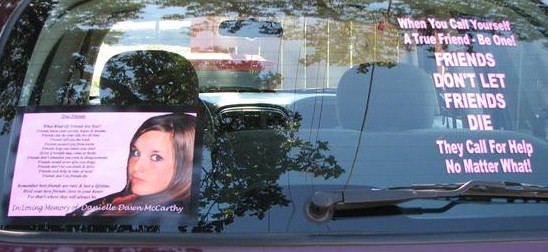
Tee Shirts
Stickers Too


Tee Shirts
Stickers Too

Made by Danielle McCarthy's Parents
We Are the Broken
Our lives have changed Our children taken, We're filled with pain.
To show you care. At first you support us Then you're not there. We see you out You see us too You avoid us That hurts too. What did we do For you to leave? Our children died Now we grieve. We put on masks When you are near We scream inside But you don't hear. You tell us, "Move on. Get on with your life." We simply nod Your words piercing like a knife. We long to say our child's name The one you want unspoken So you don't call because you're
afraid Of we, who are the broken. By: Kim Lasater
|

